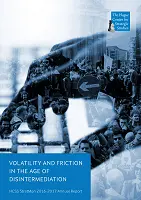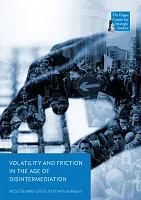The Hague, 20 February 2017 – the Annual Report of the HCSS StratMon is published and was handed over to Foreign Minister Bert Koenders.
The annual report is part of the contribution of HCSS to help Dutch defense and security organizations prepare for challenges that lie ahead. This is what we have set out to do in our annual contributions to the Dutch government’s Strategic Monitor since 2011. The principal purpose of this report is to get a better grip on many important aspects of international interactions that much of the public debate tends to gloss over. Our overall objective is to provide a better evidentiary base to help the Dutch government improve its strategic anticipatory ability.
Events unfolded once again at a swirling pace in 2016. Terrorists hit Europe’s capital in March. The British population voted for Brexit in June. Turkish armed forces failed to topple Erdoğan in July. A resurgent Russia flexed its military muscles again in the Middle East and actively interfered in American elections, in which the American population elected Trump, in November. We are worried but certainly not surprised by the volatility of contemporary international relations. In previous editions of our contribution to the Dutch government’s Strategic Monitor, we already observed a surge in assertive behavior, noted a dangerous uptick in crises, and warned for the contagiousness of political violence.
The current volatility is not a coincidence, but rather the result of fundamental disturbances of the global order that are greatly amplified by rapid technological developments. Most mainstream explanations of recent turbulence focus on power transitions (the decline of the West and the rise of the rest), the concomitant return to more aggressive forms of power politics, and a backlash against globalization. What strikes us is that many of the explanations ignore what we consider one of the most striking mega trends that is reshaping the dynamics of power: the ongoing process of disintermediation.
Click here for the full report.
Pressrelease (NL)








